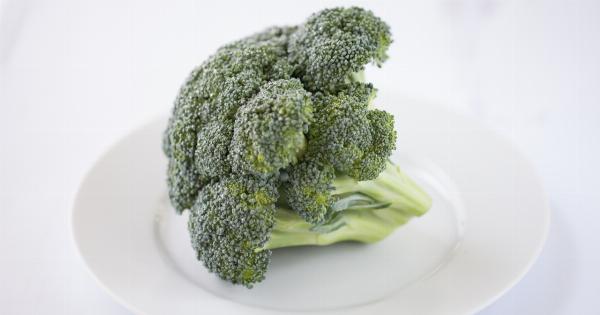Vegetarianism has been gaining popularity around the world, with many people choosing to follow a plant-based diet for various reasons, such as health benefits and concerns for animal welfare.
However, like any other diet, vegetarianism can become a disorder when it is taken to extremes, leading to physical and mental health problems. This article discusses the potential dangers of unhealthy vegetarianism and provides tips on how to avoid falling into this trap.
What is Unhealthy Vegetarianism?
Unhealthy vegetarianism refers to a type of vegetarianism that is not nutritionally balanced and lacks the essential nutrients that the body needs to function properly.
This can result in various physical and mental health problems, including malnutrition, anemia, low energy levels, depression, anxiety, and even eating disorders.
The most common nutrient deficiencies in vegetarian diets are protein, iron, calcium, vitamin B12, and omega-3 fatty acids.
These nutrients are abundant in animal products, so vegetarians need to find alternative sources of them in plant-based foods or supplements. However, not all plant-based foods are rich in these nutrients, and some may even hinder their absorption or utilization.
Why does Unhealthy Vegetarianism Occur?
Unhealthy vegetarianism can occur for various reasons, including:.
- Lack of knowledge or planning: Some people become vegetarians without knowing how to balance their diet or plan their meals to meet their nutritional needs. They may rely too much on processed foods, junk foods, or low-nutrient foods, or skip meals altogether, leading to nutrient deficiencies over time.
- Misinformation or biases: Some people may follow extreme versions of vegetarianism, such as raw veganism, fruitarianism, or juice fasting, based on misconceptions or pseudoscientific claims about health benefits or ethics. They may ignore or dismiss scientific evidence or practical advice that contradicts their beliefs or preferences, leading to irrational or unbalanced dietary choices.
- Underlying mental or emotional issues: Some people may use vegetarianism as a way to control their weight, body image, or food intake, or as a coping mechanism for stress, trauma, or social anxiety. They may over-restrict their diet, obsess over their food choices, or avoid social situations that involve food, leading to social isolation, anxiety, or depression.
What are the Consequences of Unhealthy Vegetarianism?
The consequences of unhealthy vegetarianism can vary depending on the severity and duration of the deficiency, as well as the individual’s age, gender, activity level, and health status. In general, the following problems may arise:.
- Malnutrition: Malnutrition occurs when the body lacks the essential nutrients it needs to maintain its functions and health. This can lead to fatigue, weakness, hair loss, skin problems, immune dysfunction, and even organ damage or failure.
- Anemia: Anemia occurs when the body lacks enough red blood cells or hemoglobin to transport oxygen to the tissues. This can lead to fatigue, shortness of breath, pale skin, dizziness, and cognitive impairment.
- Bone loss: Bone loss occurs when the body lacks enough calcium, vitamin D, and other nutrients needed to build and maintain strong bones. This can lead to osteoporosis, fractures, and dental problems.
- Hormonal imbalances: Hormonal imbalances can occur when the body lacks enough protein, iron, or omega-3 fatty acids to support the production and regulation of hormones. This can lead to menstrual irregularities, infertility, and mood swings.
- Eating disorders: Eating disorders can occur when the individual becomes obsessed with their food intake, weight, or body shape to the point of impairing their social, emotional, and physical health. This can lead to anorexia, bulimia, binge eating disorder, or other eating disorders.
How to Avoid Unhealthy Vegetarianism
To avoid unhealthy vegetarianism, it is essential to:.
- Educate yourself: Learn about the nutritional requirements of a balanced vegetarian diet, including the sources, amounts, and bioavailability of key nutrients. Consult registered dietitians, reputable websites, or credible sources of information to ensure that your dietary choices are evidence-based and practical.
- Plan your meals: Plan your meals ahead of time to ensure that you include a variety of foods that provide all the essential nutrients. Choose whole, minimally processed foods over highly refined or packaged foods, and vary your sources of protein, iron, calcium, vitamin B12, and omega-3 fatty acids. Consider using supplements or fortified foods if you are unable to meet your nutrient needs through diet alone.
- Listen to your body: Pay attention to how your body responds to your diet, including your energy levels, mood, digestion, and overall health. If you notice any signs of nutrient deficiencies or health problems, seek professional advice from your healthcare provider or dietitian. Do not rely on self-diagnosis or self-treatment based on internet sources or personal anecdotes.
- Be mindful and flexible: Be mindful of your food choices and eating habits, but do not be too rigid or compulsive. Enjoy your food without guilt or judgment, but also be aware of the ethical and environmental implications of your dietary choices. Try new foods, recipes, and cuisines to expand your palate and have fun with your diet.
- Address underlying issues: If you use vegetarianism as a way to cope with mental or emotional issues, seek professional help from a therapist, counselor, or support group. Address the root causes of your issues and develop healthier coping strategies that do not rely on food restriction or obsession.
The Bottom Line
Being a vegetarian can be a healthy and ethical choice, but it can also become a disorder when it is taken to extremes or lacks proper planning and knowledge.
Unhealthy vegetarianism can lead to a range of physical and mental health problems, from malnutrition to eating disorders.
To avoid falling into this trap, educate yourself about the nutritional requirements of a balanced vegetarian diet, plan your meals ahead of time, listen to your body, be mindful and flexible, and address any underlying issues that may affect your dietary choices.


























